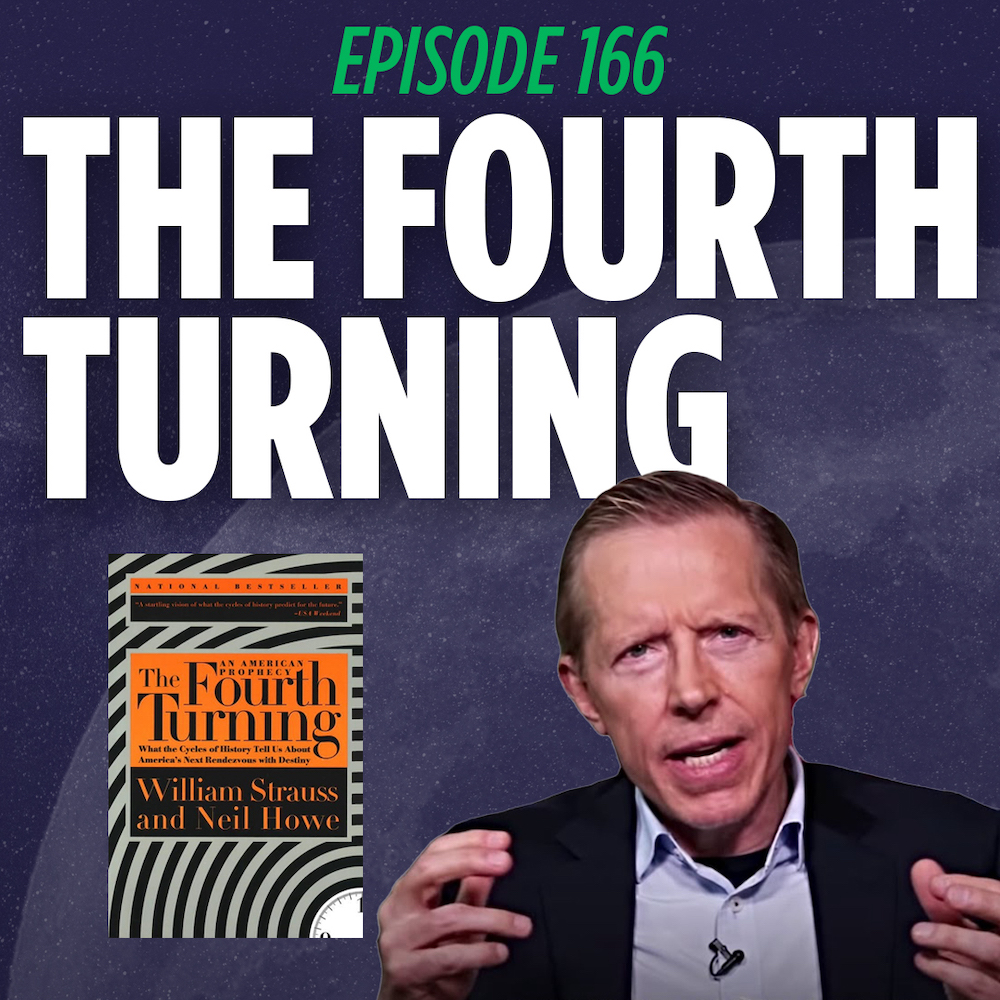Every generation’s unique experience shapes its values, beliefs, and behaviors. The Fourth Turning, a book co-authored by William Strauss and Neil Howe, presents a compelling argument that generational cycles can predict social, economic, and political crises. The authors argue that America is in the midst of the fourth turning, a period of crisis that requires a profound change in leadership, values, and institutions. In this blog post, we will explore the fundamental concepts of the Fourth Turning, examine the generational cycles, and discuss some off-the-wall theories from the book.
Generational Cycles
According to Strauss and Howe, four generational archetypes repeat every 80-100 years, lasting approximately 20-25 years. These archetypes are based on the collective experiences and values of the generations born during specific historical periods. The four archetypes are:
- Hero: born during a crisis, these individuals are known for their resilience, courage, and sacrifice. They are willing to fight for a cause greater than themselves and are determined to rebuild society after a crisis.
- Artist: born during a time of recovery, these individuals are known for their creativity, individualism, and skepticism. They challenge traditional values and institutions and seek to create a new culture that reflects their values and beliefs.
- Prophet: born during an awakening, these individuals are known for their spirituality, morality, and idealism. They seek to transform society through social and political reforms and inspire others to join their cause.
- Nomad: born during a crisis, these individuals are known for their pragmatism, adaptability, and resilience. They are able to navigate through turbulent times and are skilled at finding new opportunities and resources.
The Fourth Turning
The Fourth Turning is the crisis period following the third turning, a period of cultural awakening. The authors argue that the fourth turning is a period of crisis that requires a fundamental change in values, leadership, and institutions. The fourth turning is characterized by a sense of urgency, a loss of confidence in traditional institutions, and a call for radical change. The fourth turning lasts approximately 20-25 years and is divided into four phases:
- The catalyst: a triggering event that reveals society’s underlying problems and challenges.
- The regeneracy: a period of crisis and opportunity that requires a profound change in leadership, values, and institutions.
- The climax is a period of intense conflict and upheaval that ultimately leads to resolving the crisis.
- The resolution: a period of reconstruction and renewal that creates a new society based on new values and institutions.
Off-the-Wall Theories
The Fourth Turning has generated many off-the-wall theories, some of which are controversial and even dangerous. One theory is that the fourth turning will lead to a civil war, with different generations fighting each other for control of society. Another theory is that the fourth turning will lead to a fascist or totalitarian government, with a strong leader taking control of society to restore order and stability. These theories are based on a misinterpretation of the Fourth Turning and the generational cycles. The authors argue that the fourth turning requires a fundamental change in values and institutions, not a violent or authoritarian takeover.
Conclusion
The Fourth Turning presents a compelling argument that generational cycles can predict social, economic, and political crises. The authors argue that America is in the midst of the fourth turning, a period of crisis that requires a profound change in leadership, values, and institutions. The generational cycles of the hero, artist, prophet, and nomad provide a framework for understanding each generation’s collective experiences and values. The fourth turning is characterized by a sense of urgency, a loss of confidence in traditional institutions, and a call for radical change. However, it is important to note that the Fourth Turning is not a deterministic theory and that the future is not predetermined. While the generational cycles provide a useful framework for understanding historical patterns, it is impossible to predict the exact events and outcomes of the future.
Furthermore, it is important to approach the Fourth Turning with a critical and nuanced perspective and not to take the off-the-wall theories that have emerged from the book as gospel truth. The Fourth Turning is not a call for violence or authoritarianism but rather a call for a collective effort to address society’s challenges and create a new and better future.
In conclusion, the Fourth Turning offers a unique perspective on generational cycles and the historical patterns that shape our society. While the theory has generated some controversial and off-the-wall theories, it offers a useful framework for understanding present and future challenges and opportunities. By embracing the values of resilience, adaptability, and collaboration, we can work together to create a better society and navigate through the challenges of the fourth turning.
Things I Learned Last Night is an educational comedy podcast where best friends Jaron Myers and Tim Stone talk about random topics and have fun all along the way. If you like learning and laughing a lot while you do, you’ll love TILLN. Watch or listen to this episode right now!
Sources
Strauss-Howe Generational Theory – Wikipedia
Related Episodes
Tell Us What You Think of This Content!
Don’t forget to share it with your friends!

